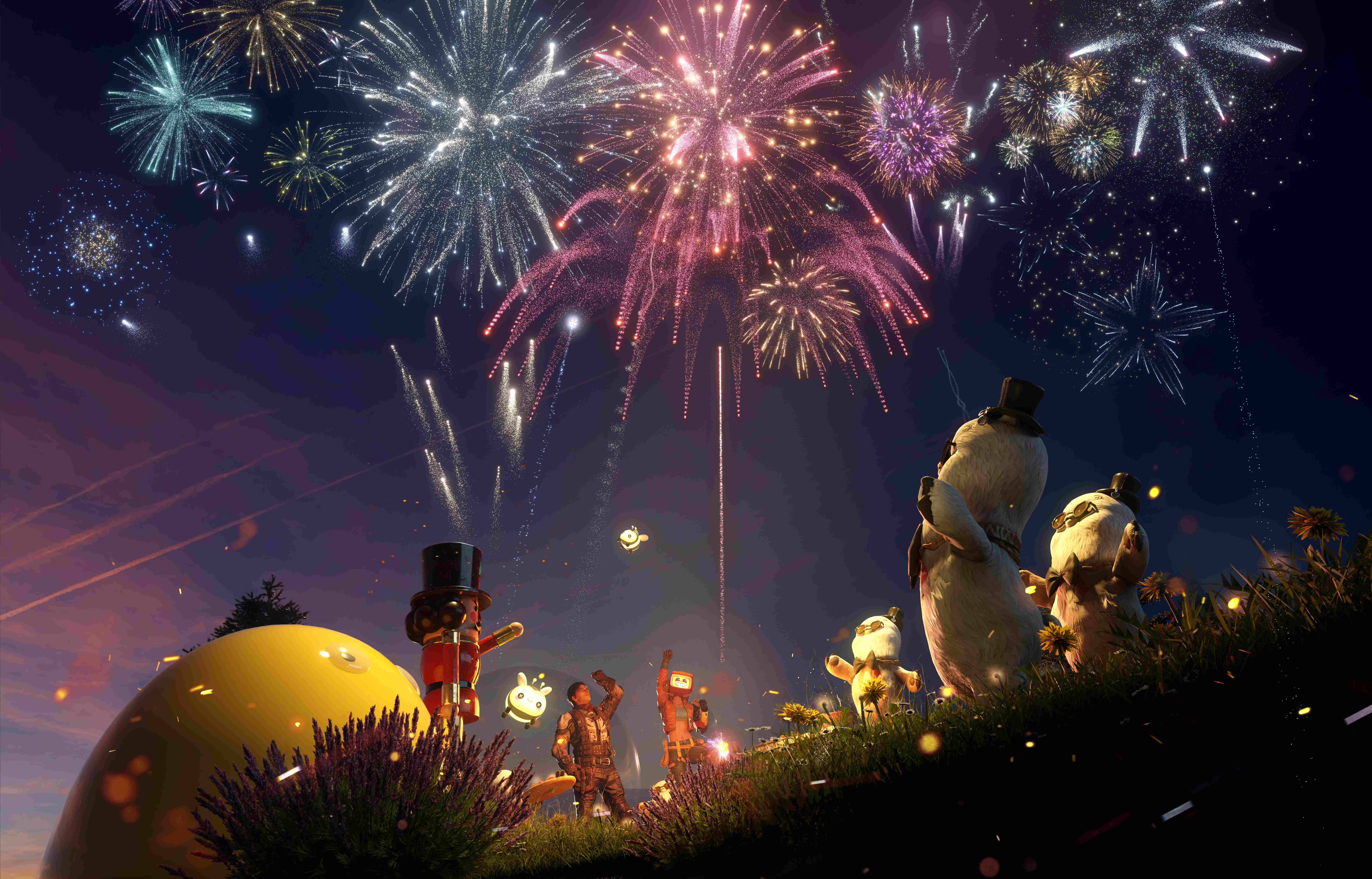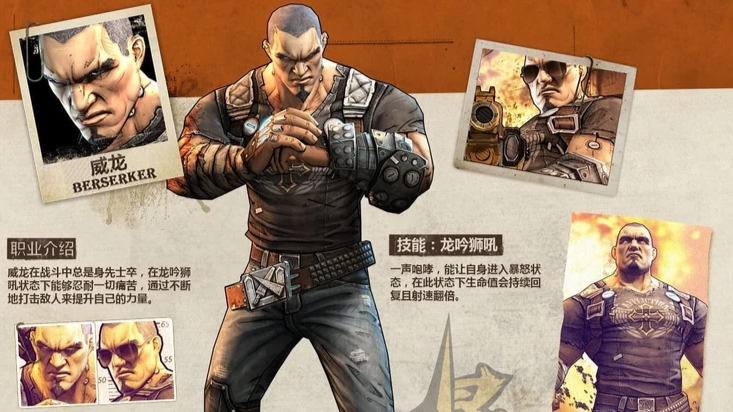
The Witcher’s Doug Cockle on Becoming Netflix’s Latest Geralt

While Henry Cavill may be the most famous actor to have played Geralt of Rivia, he’s not the first name many will think of when discussing The Witcher. Certainly amongst the gaming community, Doug Cockle — the voice of Geralt in CD Projekt Red’s series of critically acclaimed RPGs — is considered the original and ultimate white wolf. But the paths of Cavill and Cockle’s Geralts have now merged, with Cockle bringing his unmistakable voice to Netflix’s interpretation of the character in the new animated movie, The Witcher: Sirens of the Deep.
While he’s not playing the same version of Geralt who appears in the games, Cockle was not asked to alter his performance to sound more like or include the mannerisms of Henry Cavill or Liam Hemsworth, who replaces Cavill as Geralt in the next season of the live-action show. This creative decision meant Cockle was able to draw upon the same method and approach that created the unmistakably gravelly tones of his Geralt of Rivia. And so you’ll still hear the same voice you’ve known and loved for nearly 20 years.
Cockle formulated that voice back in 2005 when recording dialogue for the first Witcher video game. “The thing I found most challenging about recording Witcher 1 was actually the voice itself,” Cockle recalls. “When I first started recording the game, (Geralt’s) voice was very, very far down in my register. It was something I had to push towards.”
At the time there was little guidance as to how long voice actors should spend recording in a single session, and so Cockle was spending eight or nine hours per day delivering that gravelly voice. “I was going back to my hotel just going, ‘Wow, my throat is ripped’,” he recalls. The struggle continued into the recording of The Witcher 2 a few years later, but Cockle’s vocal chords eventually strengthened and began attuned to what was required of them — a process he sheepishly likens to an athlete’s muscles getting into shape.
Cockle’s vocal chords adapting to better support Geralt’s voice wasn’t the only major change that happened during the development of the second game, though. “The books started to come out in English while I was recording Witcher 2,” he explains. “Before that, it was the developers from CD Projekt Red who taught me everything I needed to know about Geralt. So as soon as The Last Wish came out in English, I was down at the bookstore buying it, and I tore through it. And I understood things about Geralt just from reading just that one book that I didn’t understand at all before.
“The developers kept saying, ‘He’s emotionless’,” Cockle says. “And I was like, ‘Okay, I get it, I get it, but I’m an actor. I want to play with emotions.’ But I better understood [when reading] the book why they were pushing for as flat as possible of an emotional life for him.”
Cockle immediately fell in love with the books, noting that author Andrzej Sapkowski “is such a wonderful writer.” Having grown up on Tolkien’s The Lord of the Rings, Cockle quickly forged a connection with this new fantasy universe. Of all Sapkowski’s novels, he most fondly remembers Season of Storms. It’s a story he’d love to be a part of, should Netflix ever need a voice for Geralt again.
“It’s one of those stories that when I read it, I was like, ‘Oh, this is horrible. This is awful.’ [But] it’s thrilling at the same time,” he says. “There’s some really graphic fight scenes that Sapkowski gives to us, and I think that would be a really fun story to turn into an anime or a TV episode.”
Maybe we’ll see that story in the future, but right now Doug’s Geralt can be seen and heard in Sirens of the Deep, Netflix’s latest animated Witcher adventure. Based on the short story A Little Sacrifice from the Sword of Destiny collection, it’s a dark and twisted interpretation of Hans Christian Andersen’s The Little Mermaid. After a mermaid and a human prince fall in love, Geralt finds himself caught up in a conflict between two very different kingdoms. But while there’s plenty of blood-splattering action and serious political drama, it’s the story’s lighter moments that interest Cockle the most. He notes a humorous conversation between Geralt and Jaskier, where both are sitting around a campfire after a long day, as a good example of that lightness. The scene demonstrates Geralt’s softer side, which is often overlooked as an important part of the monster hunter’s personality.
“Part of liking acting is liking all those different aspects of a character’s personality and the different choices that could be made and how they might approach those choices,” Cockle explains. “I enjoy the gravitas of Geralt when he’s all serious and mopey and whatever, but I do also like those moments when he’s trying to be light. When he’s trying to crack a joke and it just doesn’t go very well for him most of the time because he’s just not funny.”
While much of Cockle’s work on Sirens of the Deep simply required him to use a voice that’s become second nature, the anime did pose a unique challenge: learning how to speak mermaid. Yes, for the first time in his career, Cockle had to perform in a fictional language.
“I found doing this really difficult,” he confesses. “I got phonetic spellings of the words and things so I could get familiar with it and hopefully be okay on the day. And then I got in front of the mic and… it wasn’t like performance anxiety or anything like that, it’s just that it was a lot harder than I thought it was going to be.”
Things should be much easier when Cockle returns to the world of video games in The Witcher 4, which was revealed with an exciting trailer at The Game Awards last year. Returning to his original version of Geralt should be like putting on an old pair of favourite slippers. Even easier, actually, because he won’t have to record anywhere near the amount of dialogue that he did for the previous three games. This time around Geralt is set to be a supporting character in a story that puts Ciri, his adoptive daughter, in the protagonist role.
Naturally, Cockle has little to say about The Witcher 4. He claims to only know as much about it as we do. But he’s eager to see what happens in CDPR’s next chapter of The Witcher story, and thinks it’s already headed in the right direction.
“I think it’s a really good move,” he says of switching the story’s perspective from Geralt to Ciri. “I mean, I always thought that continuing the saga, but shifting to Ciri would be a really, really interesting move for all kinds of reasons, but mostly because of things that happen in the books, which I don’t want to give away because people, I want people to go read. So yeah, I think it’s really exciting. I can’t wait. I can’t wait to see what they’ve done.”
To learn more about what CD Projekt Red is planning, take a look at our in-depth interview with the creators of The Witcher 4. And to see more of Doug Cockle, be sure to watch The Witcher: Sirens of the Deep on Netflix, or find him on Instagram, Cameo, and X.
Matt Purslow is IGN’s Senior Features Editor.




